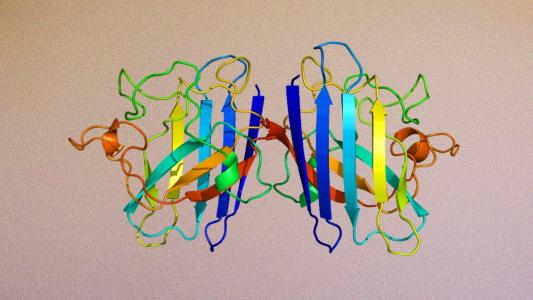A patient in a trial testing a herpesvirus-based cancer treatment saw his cancer completely disappear, and has remained cancer free in the 15 months since his treatment began, the Institute of Cancer Research (ICR) in London announced.
The outcome for West London builder Krzysztof Wojkowski was the most dramatic result seen in the small phase 1 trial of the experimental cancer therapy, called RP2. Thirty-nine patients who had exhausted all other treatment options received the treatment. Nine received the virus therapy on its own, while 30 got it in combination with immunotherapy.
“I was told there was no options left for me and I was receiving end-of-life care,” Wojkowski said in the statement. “It was devastating, so it was incredible to be given the chance to join the trial.”
Although it’s early doors, the results, which were presented at the 2022 European Society for Medical Oncology Congress in Paris, offers more evidence that cancer-killing viruses may be up to the job of snuffing out cancer where other methods have failed, and “can provide potent systemic anti-tumor effects,” the authors wrote in their poster.
A patient in a trial testing herpes’ ability to fight cancer saw the virus completely wipe his out.
The virus: RP2 isn’t just any old herpesvirus: it’s a genetically modified version of herpes simplex virus (HSV-1), the culprit behind cold sores (and an incredibly common pathogen, present in over 50% of adults in the US).
Herpesviruses, which also include the viruses behind chickenpox and genital herpes, have evolved a number of remarkable abilities, including the trick of infecting and hiding in nerve cells, from which they periodically sally forth to cause flare ups of sores or rashes, like shingles.
They also prefer to infect cancer cells. The HSV-1 in the UK trial was further modified to specifically target tumor cells, and made “oncolytic” — meaning they infect, and kill, cancer cells.
Injected directly into tumors, the virus hijacks the tumor cells, replicates, and explodes them from within — while also blocking the production of a protein called CTLA-4, which the tumor uses to hold back your immune system.
With the virus running interference, the immune system can then do what it does best: killing rogue cells.
This isn’t the first time we’ve drafted a modified herpesvirus to fight cancer — modified versions of HSV-1 have previously shown success against melanoma and brain cancer.
In fact, IRC researchers previously developed T-Vec, a virus approved by the NHS for treating skin cancer. Lead researcher Kevin Harrington told the BBC that RP2 is like T-Vec with even more teeth.
“It’s had other modifications to the virus so that when it gets into cancer cells it effectively signs their death warrant,” Harrintgon said.
“I was told there was no options left for me and I was receiving end-of-life care. It was devastating, so it was incredible to be given the chance to join the trial.”
Krzystof Wojkowski
The trial: The ongoing phase 1 trial, run with the The Royal Marsden NHS Foundation Trust and sponsored by RP2’s manufacturer Replimune, was designed to test the safety and best dosage for the drug, as well as its ability to shrink several different kinds of tumors.
It has enrolled thirty-nine patients whose cancers have not responded to other treatments.
Of the nine patients who only received RP2, three saw results. Two of them, one with oesophageal cancer and the other with a rare eye cancer called uveal melanoma that had spread to the liver, had their tumors shrink, with the cancer’s progression still halted 15 and 18 months, respectively, after treatment.
The other patient, West London builder Wojkowski, had his salivary gland cancer completely wiped out.
Of the 30 patients who received RP2 along with an immunotherapy called nivolumab, seven of them responded to the combined drugs. Melanoma, uveal melanoma, and head and neck cancer patients all had their cancer’s growth stop or shrink. After 14 months, there had still been no progression in six of the seven cancers.
When patient’s tumors were biopsied before and after injection, they found evidence that herpes was working to activate the immune system, with more immune cells present around the tumor. The drug caused mild side effects, including fever, chills, and fatigue.
Although a small and still ongoing trial, these early results are promising, Jonathan Zager of Tampa’s Moffitt Cancer Center told Insider.
“We’ll see some more studies done in the very near future, and I’m excited — certainly not disheartened or skeptical,” Zager said.
“Viruses are one of humanity’s oldest enemies, as we have all seen over the pandemic. But our new research suggests we can exploit some of the features that make them challenging adversaries to infect and kill cancer cells.”
Kristian Helin
Next steps: “Our study shows that a genetically engineered, cancer-killing virus can deliver a one-two punch against tumours – directly destroying cancer cells from within while also calling in the immune system against them,” Harrington said in a statement.
The next step is to continue testing RP2 in more patients, to see if its efficacy holds up, especially against cancers that resist current treatments.
“Viruses are one of humanity’s oldest enemies, as we have all seen over the pandemic,” Kristian Helin, the chief executive of IRC, said.
“But our new research suggests we can exploit some of the features that make them challenging adversaries to infect and kill cancer cells.”
We’d love to hear from you! If you have a comment about this article or if you have a tip for a future Freethink story, please email us at [email protected].






